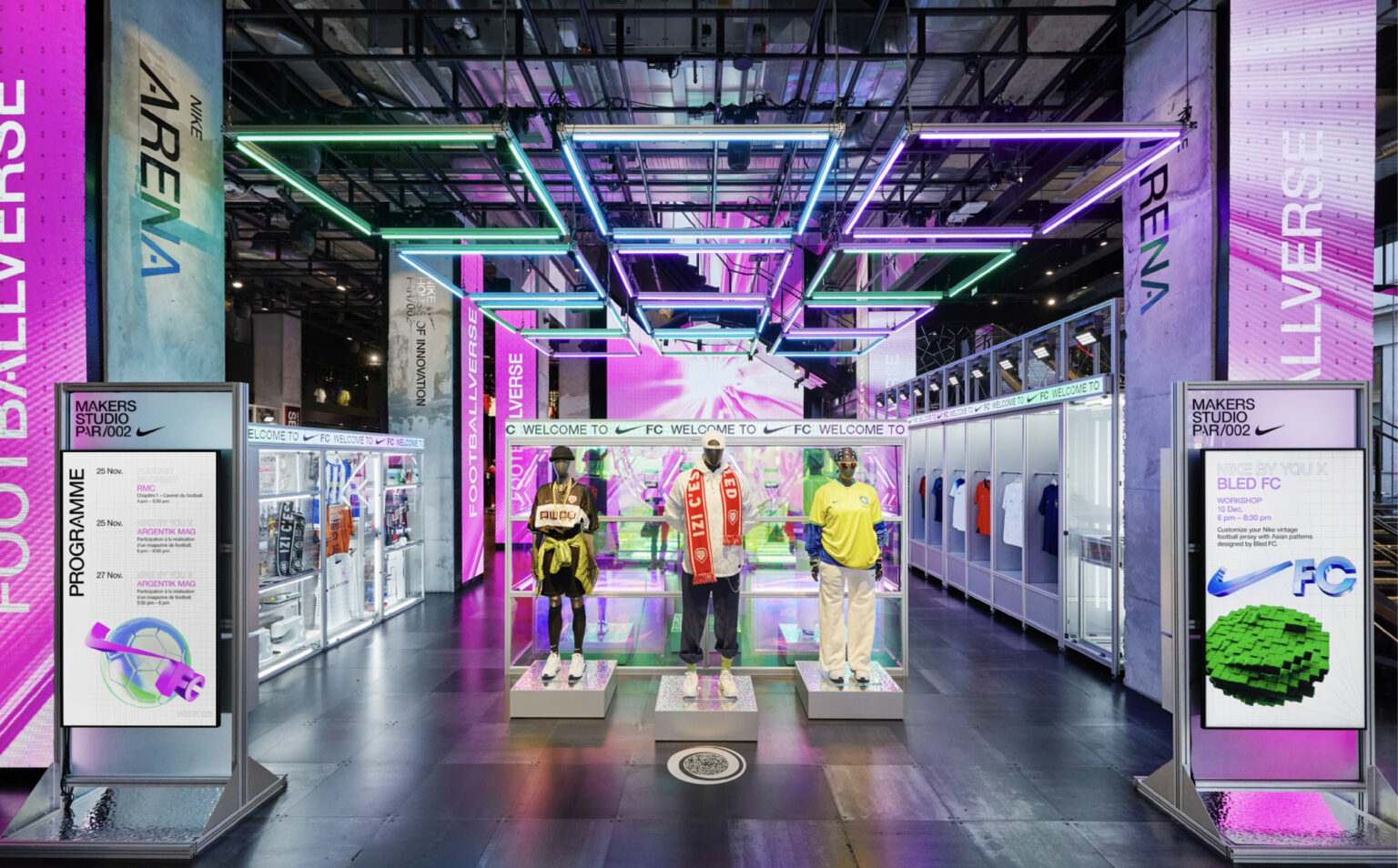
The concept of the digital storefront emerges as an innovative and disruptive idea. Digital storefronts offer numerous benefits and are a trend in the retail sector due to their ability to enhance customer experience, boost sales, and provide a competitive edge, even when it comes to sustainability.
Current trends in digital storefront design focus on three fundamental pillars: real-time personalization, clients interaction with screens, and the integration of mobile technology to facilitate direct purchases. Additionally, there is a growing emphasis on sustainability and energy efficiency.
These trends are transforming the way brands interact with their customers and stand out in an increasingly competitive market.
Screens are the main component of a modern digital storefront. They can be LCD, LED, or even touch screens, depending on the company’s goals and budget. The choice of screen size and quality is crucial to ensure visual content visibility.
Dynamic content is one of the most notable features of digital storefronts. Screens allow for displaying images, videos, animations, and other types of multimedia content that can be changed programmatically or in real time. This facilitates the attractive and effective promotion of products, events, and offers.
Remote management of content is essential to keep the storefront updated. This is one of the main benefits of a digital storefront, the dynamism of content from anywhere at any time.
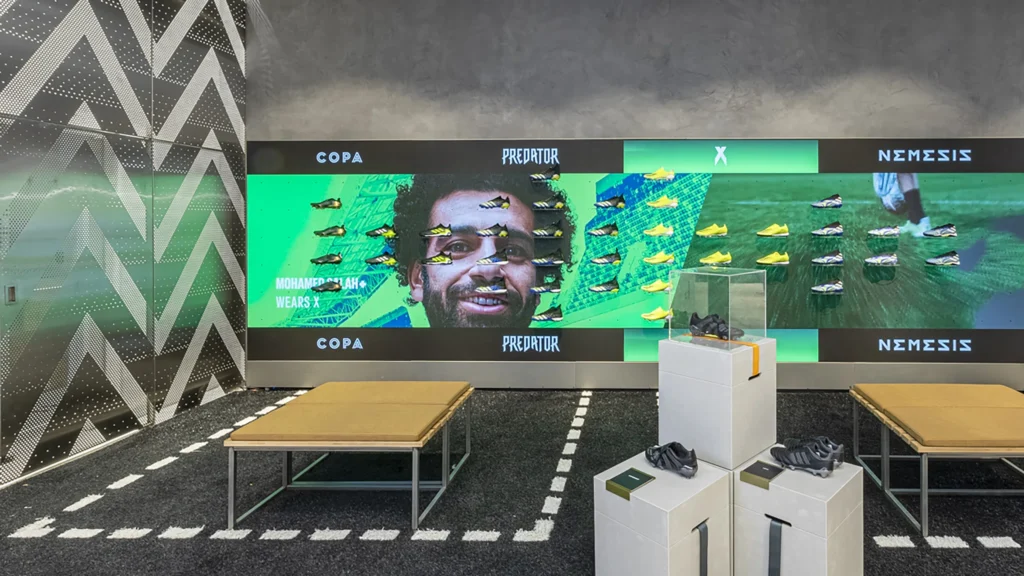
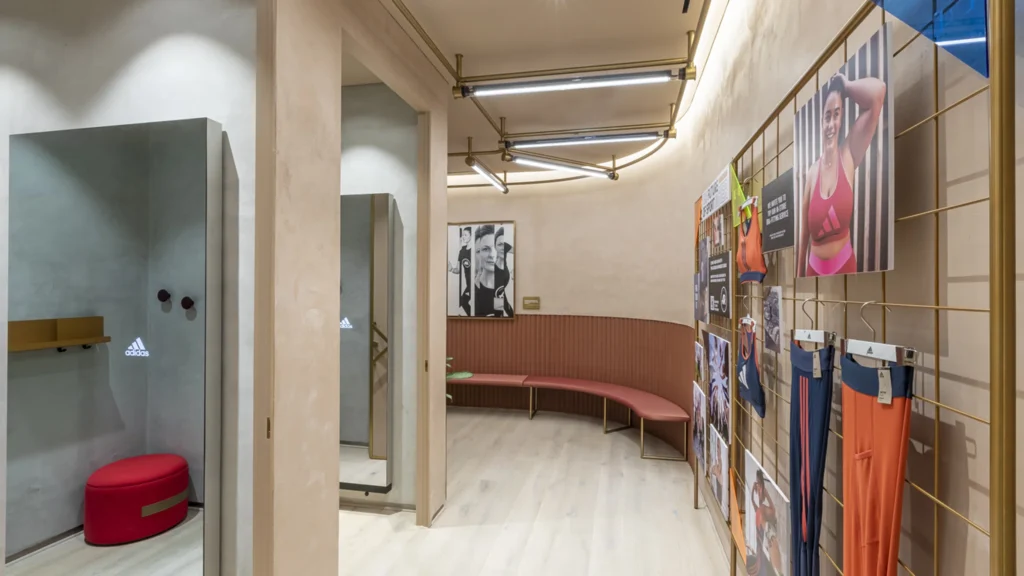
We have a great example in Adidas’ “Digital Store” inaugurated a few years ago in Dubai. Where technology implementation is global in all spaces, we can find elements such as immersive digital ceilings that communicate the brand’s DNA, smart fitting rooms, and interactive screens.
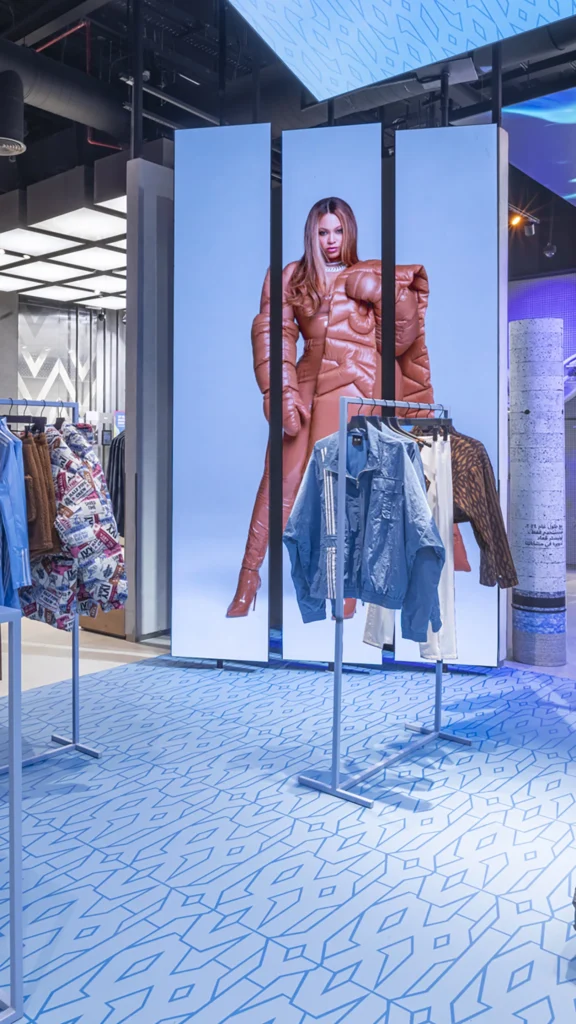
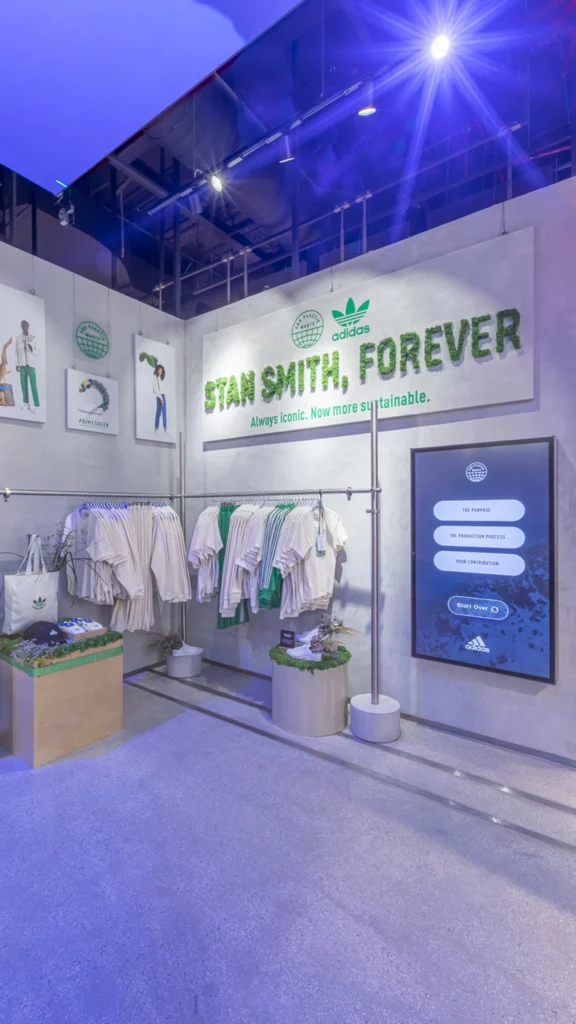
Clients interaction is a fundamental action in the design of digital storefronts. Incorporating the ability to touch the screen for more information about a product, swipe to see different options, or even participate in games or interactive experiences is one of the most implemented current trends that have made what we see in the storefront transfer to the store interior to continue the shopping experience.
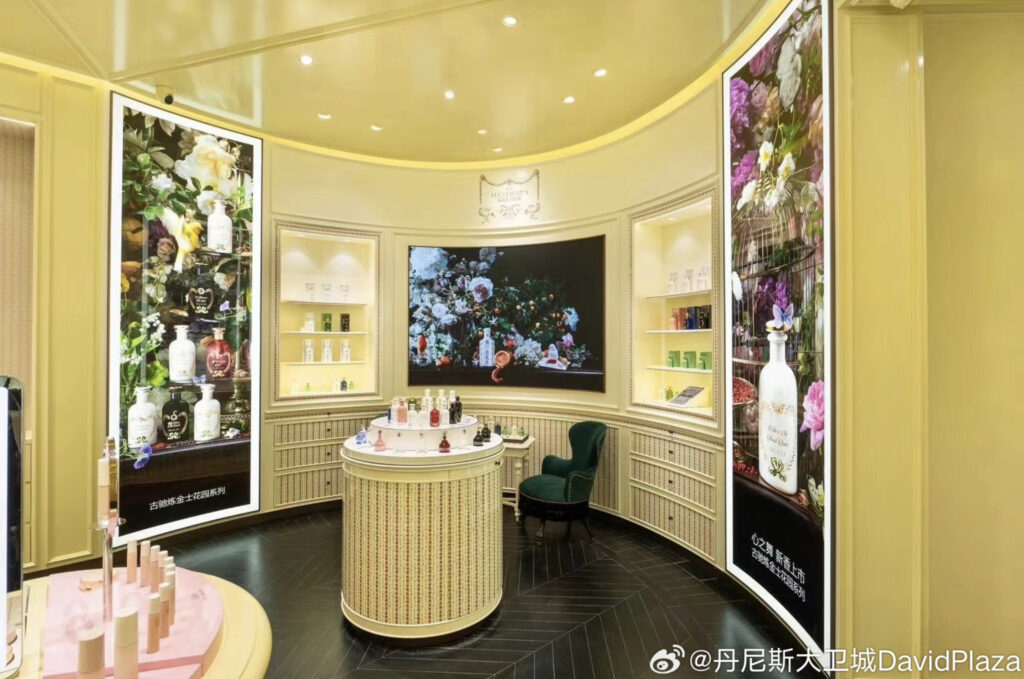

Digital storefronts are an effective tool for advertising and promotion at the point of sale. They are mainly used to display product, service, or event-specific advertisements and can also be integrated with broader marketing campaigns.
Some brands incorporate user-generated content, such as reviews, photos, and videos of products, to increase authenticity and customer trust.
The retail sector is undergoing significant digital transformation driven by a variety of emerging tools and technologies. A notable trend is the simultaneous use of tools to maximize their potential.
Digital storefronts can be linked with mobile devices through QR codes or specific applications. This facilitates customers when accessing additional information or making purchases directly from their mobile devices.
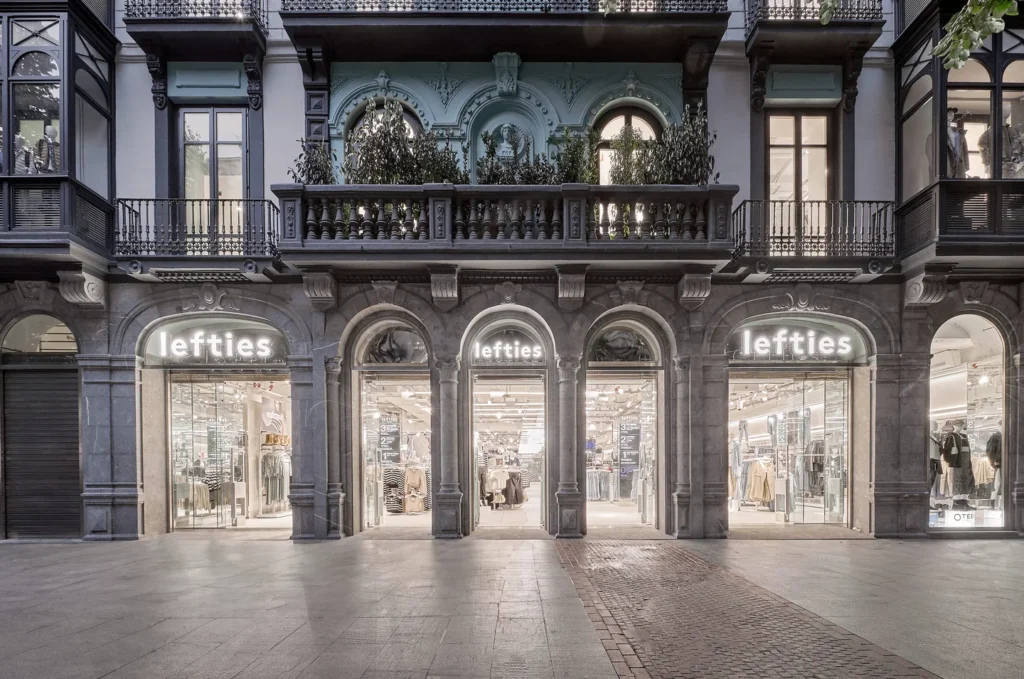
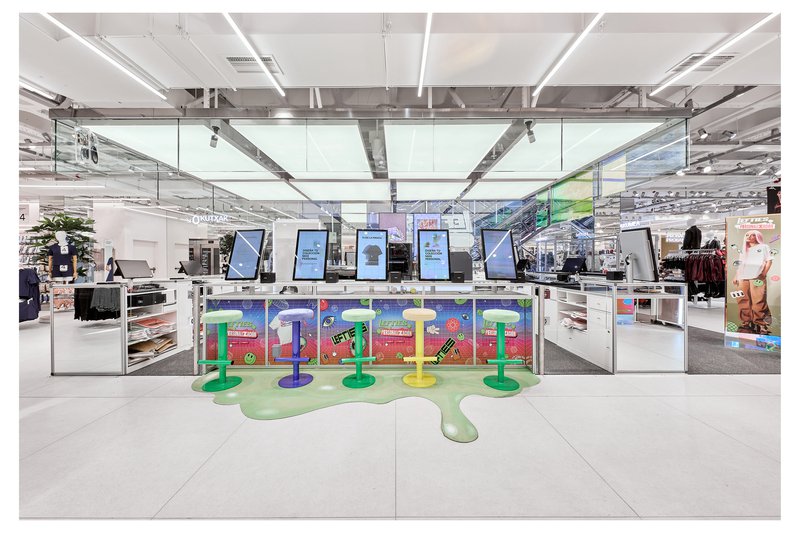
Speaking of technology in the retail sector, we can go one step further and see how, nowadays, it is increasingly common to find automated checkouts in stores, also known as self-checkouts. Thanks to RFID technology, customers can scan and pay for products without the need to go through a traditional checkout.
Robots are used to automate tasks such as inventory control in warehouses, store cleaning, and product delivery, both within warehouses and for customer delivery.
Some examples of these implementations are reflected in stores of the Inditex group, such as the new Lefties digital store in Bilbao or the large Zara store located in Plaza de España in Madrid. These actions are carried out with the aim of streamlining the online order delivery service and shortening wait times for customers.
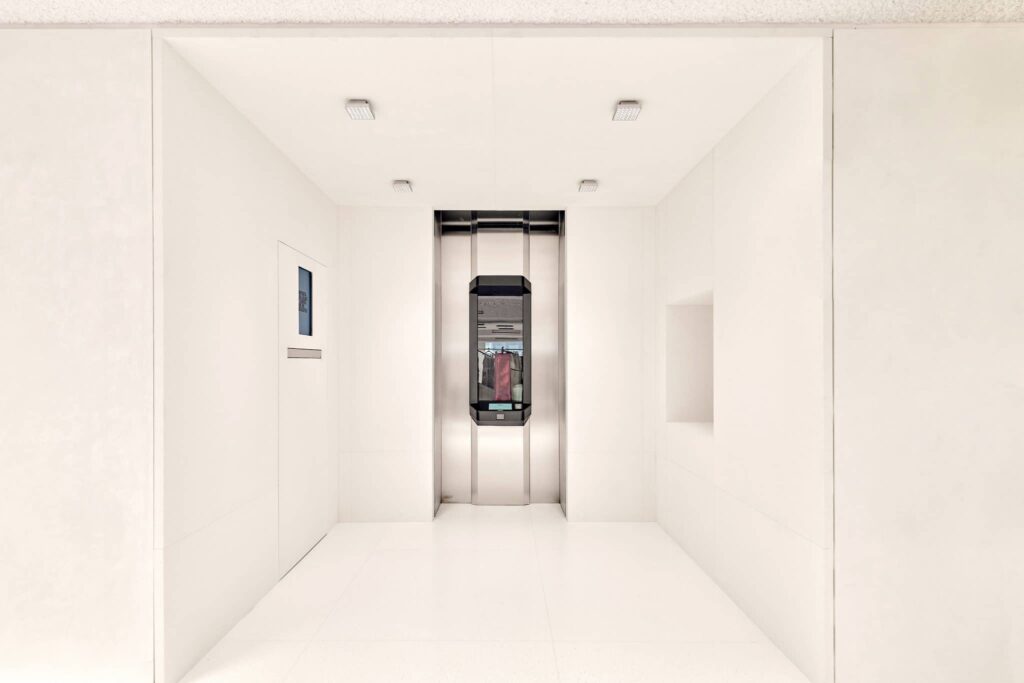
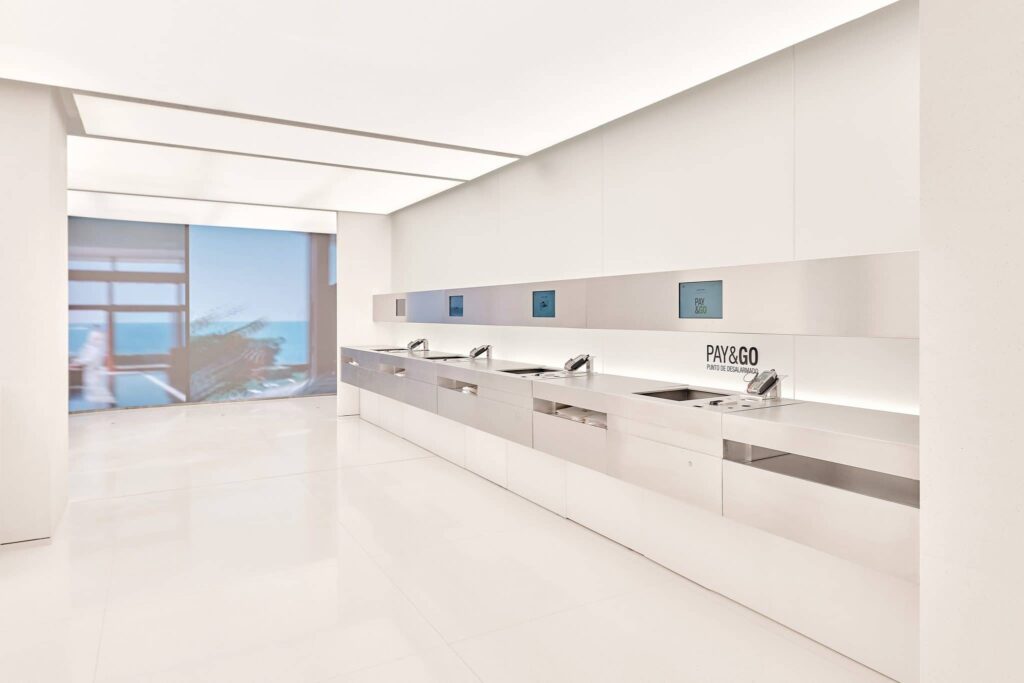
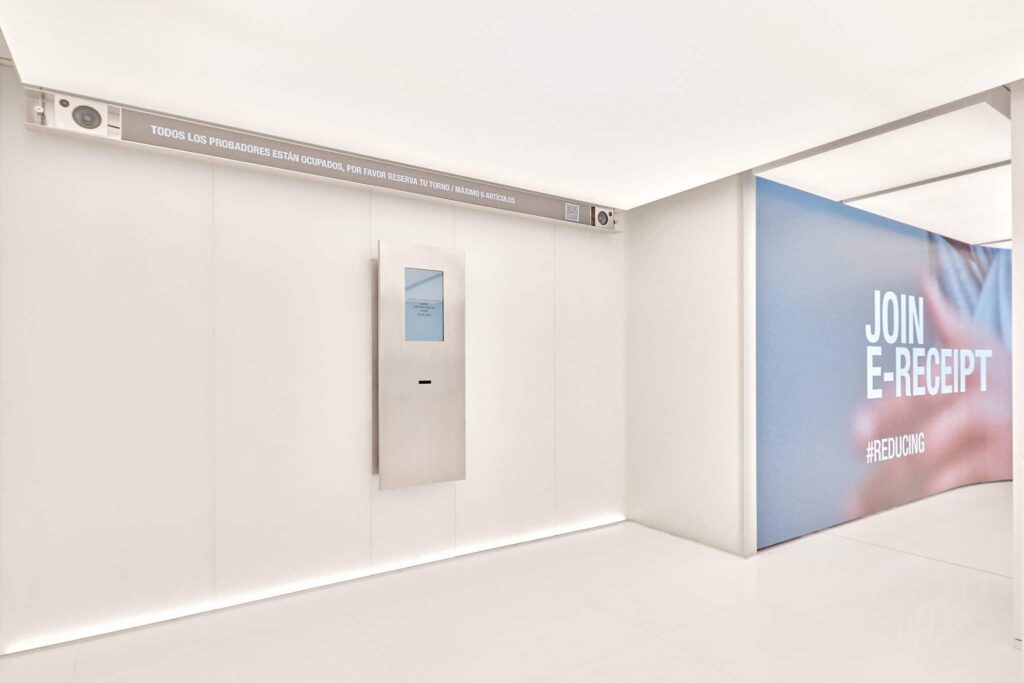
The adoption of new tools and technologies in the retail sector is firmly focused on improving the customer experience.
From the personalization and convenience offered by e-commerce and mobile applications to the immersive experiences enabled by augmented reality and virtual reality, they show great results thanks to new technologies designed to create more meaningful and satisfying interactions.
Additionally, data analysis and artificial intelligence allow companies to provide personalized attention and make precise decisions, contributing to customer loyalty and strengthening the relationship between the brand and the consumer.
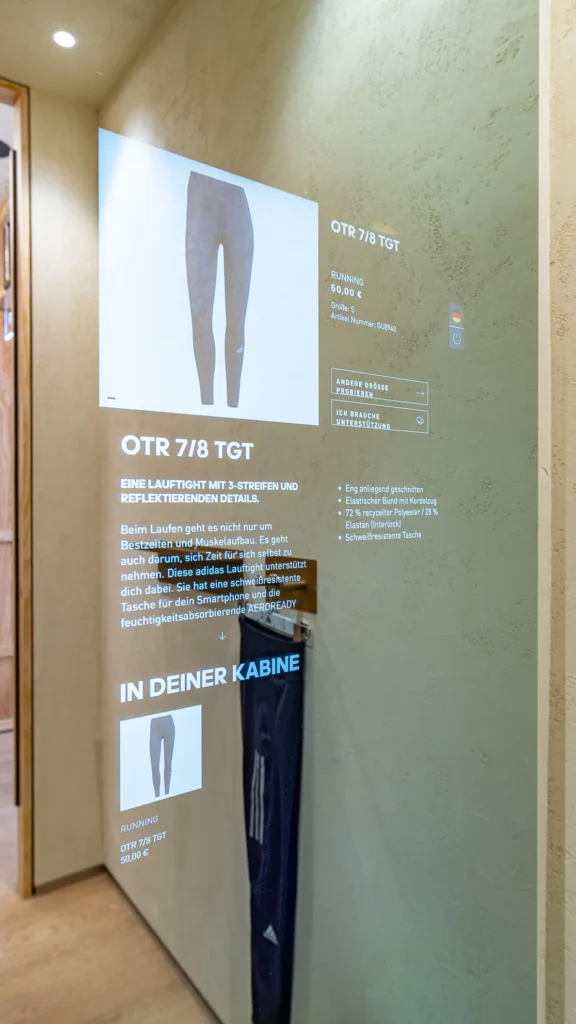
In short, the use of emerging tools and technologies in the retail sector aims to improve the customer experience through personalization, convenience, and content relevance.
With digital storefronts, mobile applications, artificial intelligence, and augmented reality, more meaningful interactions with customers can be created.
In a highly competitive market, adopting these technologies has become an essential tool for attracting and retaining customers, strengthening brand relationships, and maintaining relevance in the digital age.
You may also be interested
open
08:00 AM-18:00 PM Monday – Friday
08:00 AM-18:00 PM Monday – Friday